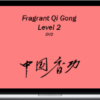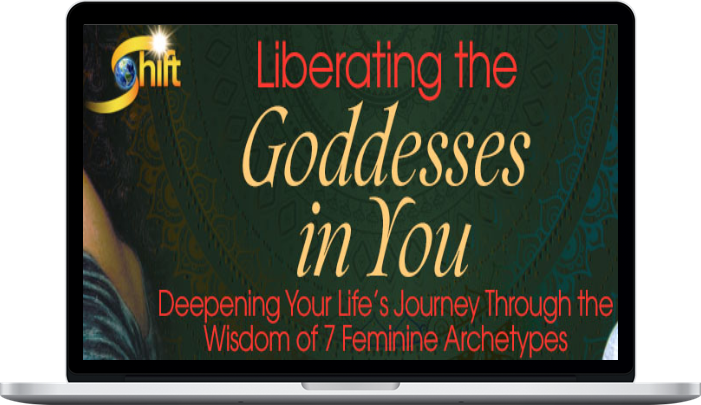Jean Shinoda Bolen – Liberating the Goddesses in You
$297.00 $119.00
» Instant Delivery
Description
Jean Shinoda Bolen – Liberating the Goddesses in You
Liberating the Goddesses Within
The Liberating the Goddesses in You program is the first virtual program in which pioneering Jungian analyst and bestselling author, Jean Shinoda Bolen, guides you on a journey into your psychological and spiritual depths to access the archetypal powers within you.
In this unprecedented virtual training, you’ll have the opportunity to explore the seven primary mythological Greek goddesses at the core of Jean’s bestselling book, but in far more depth. You will come to know first-hand the groundbreaking teachings that have helped more than half a million women to find their inner self and true life’s purpose.
You’ll learn to recognize the deep qualities of each goddess within you — both the positive and negative traits — and how you can use their strengths to point your sail in the direction of your soul’s truest path.
Each goddess embodies unique qualities and personality traits that together comprise the full spectrum of your feminine self. Over-identifying with just one goddess can prevent you from embodying and expressing all the various facets of yourself and living a balanced life. And identifying with the wrong goddesses for you can be equally problematic.
As you explore these goddesses — opening to each at the depths your soul deems right for you — you can better experience the greater forces at play within you. You will start to discover which goddesses you need to embody to truly feel “at home” in your body and life. .. and which goddess energy you must tone down so that you can enjoy a more fulfilling and soul-aligned life.
This 10-part journey is about walking boldly and purposefully into your authentic self,confident that the goddesses within you are guiding you to live a life that is soul-inspired, liberating and radiates your inherent qualities — and greatest gifts — outward to be realized and shared with all.
Along the way, as you get better insight on your psychology, you will also gain insight on psychology of others and this will enhance your relationships with those around you, including romantic partners, family members, coworkers, even those you connect with casually in your everyday life.
What You’ll Learn In Liberating the Goddesses in You?
In this 10-part transformational journey, Jean will guide you through the fundamental feminine archetypal forces, insights, and patterns that you’ll need to successfully access your natural soul expression and live from a place of wholeness.
Peach module will build harmoniously upon the next, so that you’ll develop a complete, holistic understanding of the practices and insights you’ll need to deepen your soul’s journey into these archetypal energies.
Module 1: You Are the Protagonist in Your Own Life Story – What Will You Do With “Your One Wild & Precious Life?”

The phrase “your one wild and precious life” comes from Mary Oliver’s poem “Summer Day,” and is known by many. The wildness that Oliver refers to is your innate nature — who you were born into the world as and the way of being that is natural to you.
This wild nature is also the stirring of goddess energies within you. This module will help you start to discover your goddess energies within. It will also guide you in discovering the effects the outer world has had on these energies’ ability to be activated as the life-fulfilling juice they can be, including explorations of the influence patriarchy, culture, your upbringing, and the Women’s Movement.
In this module, you’ll:
- Remember the child you were and what parts of you from childhood were suppressed inside you and by whom
- Explore what was valued by which parent when you were growing up and how this affected your innate nature
- Discover how you may have been shamed and, thus, learned to shame yourself in the same ways
- Begin to feel compassion and appreciation for what you have survived, done and loved
- Experience a short guided meditation-visualization and reflection to invite in your inner child
- Explore song and myth as a source of inspiration for honoring your inner child
- Learn the meaning of The Myth of the Procrustean Bed and how it applies to you
Module 2: To Know the Goddesses Within is to Know Yourself

Archetypes are deep patterns of being and behaving. They act in us and through us whether we know them by name or not. Throughout this course, you will explore seven mythological Greek goddesses: Artemis, Athena, Hestia, Hera, Demeter, Persephone and Aphrodite.
The archetypal energies of one of them may remain dominant within you throughout your life and can be considered your natural or “signature” goddess. You may also experience the stirring of several of the goddesses within you over your lifetime, as the need or desire to shift your inner compass arises during different phases of your life.
In this module you’ll:
- Gain an overview of the Goddesses and their qualities according to category: the Virgin Goddesses (Artemis, Athena and Hestia); the Vulnerable Goddesses (Hera, Demeter and Persephone); and the Alchemical Goddess (Aphrodite)
- Learn the differences in the consciousness of each category, including the Virgin Goddesses ability to focus on what matters to them; the Vulnerable Goddesses keen awareness of people and the atmosphere around them; and the prospective effects of the activation of the Alchemical Goddess’ energies
- Discover the psychological and personal characteristics inherent in each category of goddesses
- Experience a quiet reflection to discover which of these goddesses energies are stirring within you now and why
Module 3: Artemis – Goddess of the Hunt & Moon

You will start with the stories of Artemis. Artemis was the first born of twins; her brother was Apollo, God of the Sun. She was a help to her mother — the only goddess known for this. Her realm was the wilderness, which she roamed with her nymph companions.
Those who embody the Artemis archetype have a sense of equality with men, a sisterhood with women and an affinity with nature. Artemis energy is active in feminists, environmentalists, activists and therapists motivated to help the vulnerable. Artemis also has a spiritual or mystical way of seeing: moonlight vision.
In this module, you’ll learn:
- The mythology of Artemis and the qualities revealed in her archetypal energies
- Modern-day examples of “Artemis women,” including Gloria Steinem, Eve Ensler, Julia Butterfly Hill, Amy Wambach, and Hunger Games’ Katniss Everdeen played by Jennifer Lawrence
- How her energies can support you in difficult times and at different stages of your life
- The Indomitable Spirit of Artemis: How to retain the psychological meaning of “virgin,” and not identify with victim
- Her shadow or dark side in mythology and how it is expressed as mercilessness and rage in women today
- What the “Artemis Woman” needs to experience and learn
- What Artemis’ symbols tell us in the myth of Atalanta: Mother Bear and Calydon Boar
- The value of circles with a spiritual center
In this module and those that follow, we’ll begin the exciting journey of discovering the characteristics and behaviors of seven mythological Greek goddesses. Through their stories, you’ll begin to recognize which goddess archetypes you are most aligned with, and discover which you may need to draw from or tone down to create greater balance within yourself and your life.
Module 4: Athena – Goddess of Wisdom, Strategy & Practical Crafts

Athena was born out of her father Zeus’ head as a grown woman wearing golden armor. She announced her arrival with a war cry and the earth shook when her feet hit the ground. She became the only Olympian that Zeus trusted with his symbols of power. She is the archetype of the Father’s Daughter, the defender of Patriarchy, and the ally of heroes.
Her realm was the city; Athens bears her name. She was the Patron Goddess of Weavers and an expert strategist on the battlefield. Both require similar skills,seeing the big picture and devising strategies to create the desired outcome.Athena Women thrive in the corporate and political worlds.
In this module, you’ll learn:
- The meaning of Athena’s symbols: her armor, spear, and the owl
- How Athena’s qualities can be in the service of patriarchal values, including power, domination and control or applied to solving problems or finding creative practical solutions
- How the archetype of Athena brings into focus the conflict between two major Jungian concepts: typology and the anima-animus theory
- How logic and competitiveness can cut Athena Women off from friendships with women, yet helps them to work well with men
- Modern-day examples of Athena Women, including Condoleezza Rice; Phyllis Schlafly, who stopped the ratification of ERA; Jacqueline Kennedy Onassis; Angela Merkel, Chancellor of Germany: and Hermione Granger in the Harry Potter films
- The shadow aspects of Athena, as revealed in the Medusa effect and the death of Hector and fate of Arachne in Greek mythology
- Ways to grow by remembering Metis (Athena’s mother), taking off your armor, and revisiting the value of feminist insights
Module 5: Hestia – The Goddess of the Hearth & Temple

Hestia is the third Virgin Goddess and least known of the Greek goddesses. She is notably absent from myths and not represented in statues or paintings. Instead,she was the fire at the center of the round hearth, which can also be represented by the mandala — Jung’s image for the Self. It was her presence that made a house a home and a building a temple. Hestia was a spiritually-felt presence that provided illumination, warmth, and heat to cook food.
A Hestia Woman is detached from the outer world that engages most people. She is not invested in being known, or desired, or ambitious. She creates a center of serenity around her. It suits her to be a homemaker or to follow a calling into a contemplative order of nuns or as a member of an ashram or collective community. The problem for a contemporary Hestia is her invisibility. In an extroverted culture, the roles that suit her are not aptly valued in our culture.
In this module, you’ll learn:
- How to value Hestia if she is your dominant archetype
- The need to develop a persona for the outer world
- The importance of staying true to Hestia as well as Poseidon and Apollo’s off-centering effects on this archetype
- The value of cultivating Hestia as the center of peace and quiet within yourself
- How to cultivate her energies through a Hestia meditation
- Gain an overview of Hestia, Artemis and Athena as the Virgin Goddess Archetypes, discovering the gifts and effects of their energies on yourself and others, whether outer or inward.
Module 6: Hera – The Goddess of Marriage

Hera is the first of the three Vulnerable Goddesses: Hera, Demeter and Persephone. These goddesses’ psychology and mythology cannot be separated from the significant others in their lives. Of necessity, they pay more attention to those around them, which diffuses their awareness of themselves.
The goddess Hera was the wife of Zeus, Chief God. Major temples and rituals were dedicated to her. Marriage was sacred to Hera, while her unfaithful husband Zeus was a philanderer, seducer and rapist whose progeny were gods and demigods. Hera became enraged and vindictive toward the women Zeus had been attracted to and took out this rage on them, their children or innocent bystanders.
The archetype of the wife is a powerful force in the psyches of Hera Women. Marriage is the goal, the source of meaning and identification. A married Hera Woman’s life centers around her spouse and a social world of couples. Her happiness and meaning depends upon fidelity and how important she is to her spouse.
In this module, you’ll learn:
- The positive aspects of being a Hera Woman, including capacity for commitment and individuation in relationship
- The Shadow aspects of Hera: rage, vindictiveness, obsessive thoughts and paranoia
- The challenges a Hera Woman faces, often learning through projection and disillusionment
- Paths toward recovery from negative Hera characteristics
- The procrustean effect of patriarchy on this archetype
- The message of The Feminine Mystique by Betty Friedan
Module 7: Demeter – The Goddess of Grain & Mother of Persephone

Demeter is the goddess of bountiful harvests — Goddess of Grain, the source of basic nourishment in bread and cereals (Ceres is her Roman name). She was portrayed as a beautiful, mature woman with golden hair and dressed in blue. She is the most maternal of the Olympians and best known as the mother of Persephone.
Demeter represents the maternal archetype and its strong instincts. Demeter Women are fulfilled through mothering and/or providing physical, psychological or spiritual nourishment to others.
During this module, Jean will tell the story of Demeter and the abduction of Persephone, interpreting and expanding its meaning and relevance to your modern day life.
In this module, you’ll learn:
- The generosity, nurturing qualities and perseverance of this archetype
- How Demeter and her archetype suffer from powerlessness under patriarchal dominance
- The Demeter Woman’s major responses to loss: agitation, apathy and depression
- How this archetype has difficulties setting boundaries when others are needy, resulting in susceptibility to burnout and depression
- Demeter’s Shadow qualities: being a “helicopter-parent” and fostering dependency
- How the need to be mother for meaning is affected by “empty-nest” syndrome
- The effects the Women’s Movement has had on Demeter Women
- Ways a Demeter Woman can grow through becoming aware and empowered and her own good mother.
Module 8: Persephone – The Maiden & Queen of the Underworld

Persephone was the nameless maiden and privileged daughter of Zeus and Demeter before her abduction by Hades plunged her into the Underworld.
Hermes was sent to bring her back to Demeter, but before she returned to the Upper World, Persephone swallowed pomegranate seeds given to her by Hades.
As a result of digesting or metabolizing the Underworld experience, she became Queen of the Underworld and a guide for others. She also would then spend part of the year in the Underworld, emerging each spring.
Persephone starts as the least defined of the goddess archetypes, the one most affected by others’ stronger personalities and most susceptible to becoming a victim, with potential for staying a victim or redeeming her suffering by becoming a guide for others.
In this module, you’ll:
- Learn about Young Persephone, Abducted Persephone and Queen of the Underworld Persephone
- Learn the meaning of the Underworld as a metaphor for addictions, depression or delusion,including its underlying energy in trafficked girls and women
- Explore how today’s “Underworld Guide” shows up as an Alcoholics Anonymous sponsor, depth psychologist, etc., or through the creation of art, poetry or music
- Explore Persephone archetypes in modern-day women and personas, including English singer/songwriter Amy Winehouse, actress/singer/songwriter Lindsay Lohan; the Laura character in the play and movie The Glass Menagerie
- Learn about the symbology of the pomegranate
- Learn about the archetypes of Demeter, Hades, Hermes and Hecate and their relation to Persephone
- Discover how the message of Easter and the Eleusinian Mysteries are very similar
Module 9: Aphrodite – The Goddess of Love & Beauty: Archetype of the Lover & Creative Woman

When Aphrodite arrived on Olympus, many of the gods were struck by her beauty and wanted to marry her. Unlike any of the other goddesses, she did the choosing, and chose to marry Hephaestus, the lame God of the Forge. Her myths tell of her many lovers, both gods and mortals, all chosen by her, who became fathers of her children.
Aphrodite’s awesome power was irresistible; she could cause divinities and mortals to fall in love. In myths in which she affects others as in the story of Medea and Jason, or in the real life of women who fall in love with abusive men, her effect can be a curse.
The image and meaning of Aphrodite herself suffered when the ancient divinities of Greece and Rome became superseded by monotheism. This goddess who was once revered became denigrated as the goddess of prostitutes.
However, when Aphrodite is active in women — who can choose to express this aspect of themselves wisely — then love and beauty enhances their relationships. Sensuality and sexuality is hers to feel and express with whom and whenever she likes; yet, only when she has autonomy and culture is not repressed by patriarchy.
In this module, you’ll learn:
- How Aphrodite can enhance all relationships and creativity
- How patriarchy controls, degrades and fears Aphrodite
- How Aphrodite’s energies can catch women unawares
- Aphrodite is the archetype yet to be liberated
- Why Aphrodite is The Alchemical Goddess
- The relationship between Aphrodite consciousness, creativity and Jungian analysis
- Aphrodite’s Pygmalion effect vs Athena’s Medusa effect
Module 10: Your life story is Unfolding

Women as well as men can be on a Hero’s Journey when they are heeding the inner call to adventure. Every woman is acted upon by two powerful forces: the goddesses within us, and the expectations of others and culture on us. Within, the archetypes can ally, and they can also create conflict.
In our outer lives, those closest to us consciously or unconsciously mold us to fit their needs. Patriarchy rewards, limits, or punishes archetypes.
So, which goddess gets the Golden Apple and who decides ? In life, we are all affected by circumstances beyond our control, yet how we respond to them determines who we are becoming. Through the use of consciousness and choice, you can determine your true path.
In this module, you’ll:
- See how consciousness and choice lead to an authentic and meaningful life
- Develop your ability to listen to messages from synchronistic events, dreams, body knowledge, heart responses and gnosis
- Hear a perspective that life is a soul journey
- Reflect upon the necessity for courage, and what it means for you and for specific archetypes to be brave
- Learn how to endure the tension of opposites until there is clarity
- Gain inspiration from the song: “If I Were Brave” by Jana Stanfield
- Learn the personal meaning of The Judgment of Paris
More courses from the same author: Jean Shinoda Bolen
Delivery Policy
When will I receive my course?
You will receive a link to download your course immediately or within 1 to 21 days. It depends on the product you buy, so please read the short description of the product carefully before making a purchase.
How is my course delivered?
We share courses through Google Drive, so once your order is complete, you'll receive an invitation to view the course in your email.
To avoid any delay in delivery, please provide a Google mail and enter your email address correctly in the Checkout Page.
In case you submit a wrong email address, please contact us to resend the course to the correct email.
How do I check status of my order?
Please log in to HealingCourse account then go to Order Page. You will find all your orders includes number, date, status and total price.
If the status is Processing: Your course is being uploaded. Please be patient and wait for us to complete your order. If your order has multiple courses and one of them has not been updated with the download link, the status of the order is also Processing.
If the status is Completed: Your course is ready for immediate download. Click "VIEW" to view details and download the course.
Where can I find my course?
Once your order is complete, a link to download the course will automatically be sent to your email.
You can also get the download link by logging into your HealingCourse account then going to Downloads Page.
Related products
Total sold: 16
Total sold: 1








